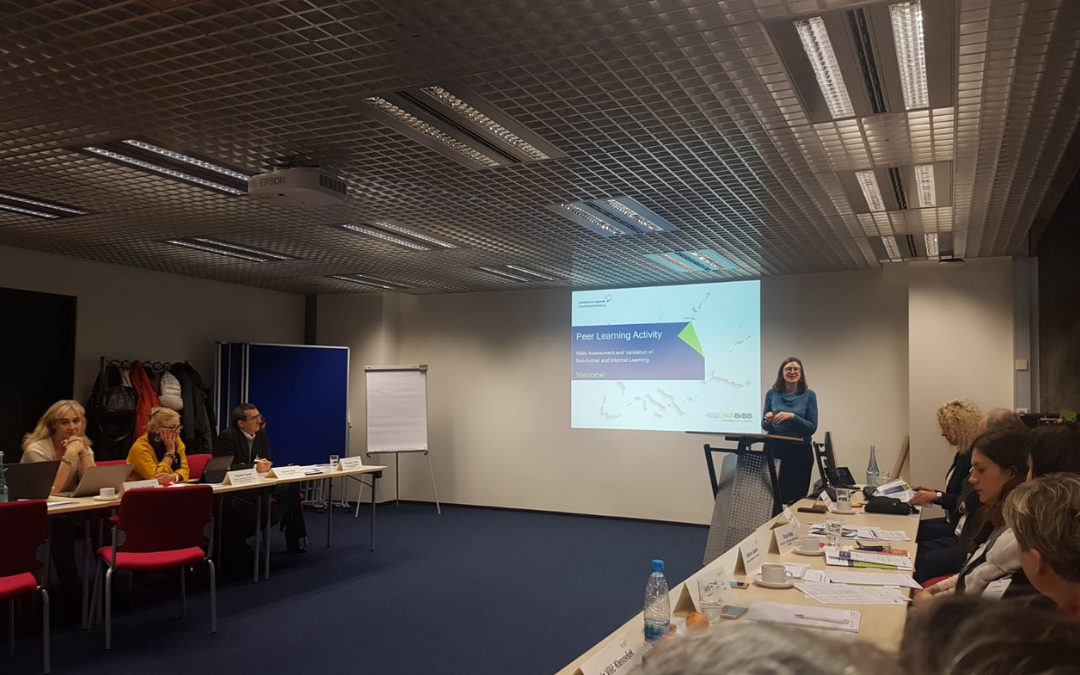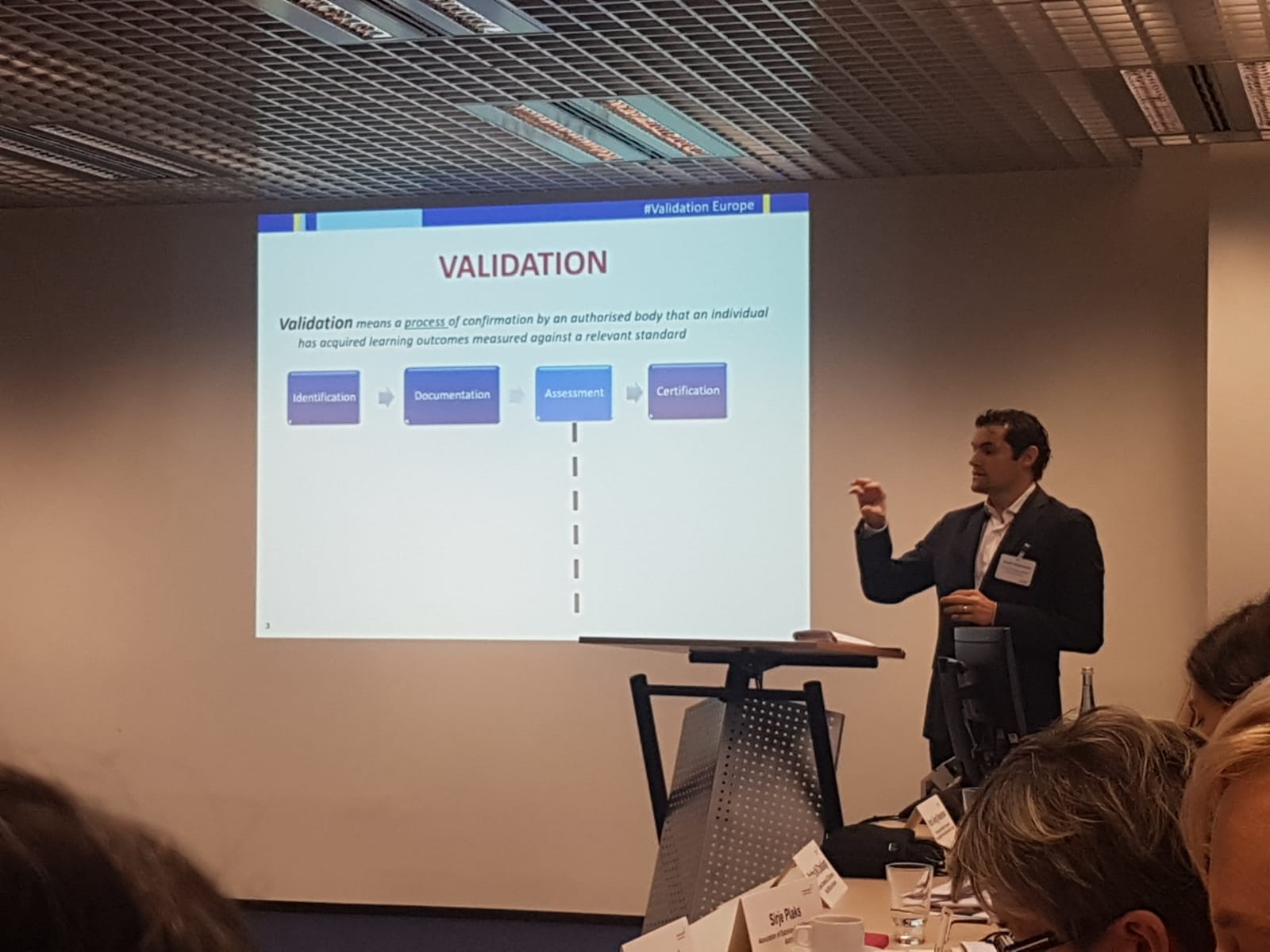Skills Assessment and Validation – Peer Learning Activity 2018 (the EAAL project)
My colleague Tanja Vilič Klenovšek and I attended the activities of exchanging experience titled Peer learning activity for National Coordinators on Skills Assessment and Validation of Non-formal and Informal Learning within the EAAL project on 4 and 5 December. The event in Bonn was hosted by the National Agency for Education for Europe at the Federal Institute for Vocational Education and Training from Germany, and attended by 40 experts from 23 European countries.
Exchange of experience among the participants and countries during the meeting was substantial, because the participants had the opportunity to ask questions, express their opinions and share truly rich and varied experience after each contribution was presented. Discussions were held in the form of world café.
What are the key findings? According to Cedefop, the validation process is composed of already known four phases (identification, documentation, assessment, certification), and the last phase leads to formal certification of competences obtained in a variety of ways. Cedefop also points out that the validation procedures in adults should fulfil other purposes – empowerment, personal growth, gaining reputation. It is therefore necessary to define procedures in a way to allow the adults to enter and exit in any phase (formative nature), while these procedures should be consistent with established formal process. While we could not ignore the important role of a consultant here, which in formative processes outgrows the initial advising of the individual, this is about the new dimensions in terms of mentoring, motivating, validating etc.
What is coming up in the area of competence validation by 2030? The two key aspects are intertwined, namely the focus on standards on one side and the individual on the other, or the labour market perspective on one hand and an individual’s development perspective on the other. An orientation to individual leads to individualised formative validation procedures, which leads to the empowerment of adults and includes the assessment of key and transversal competencies. An individual can obtain a certificate, which is not equivalent to formal ones, and the validation procedures reach the assessment phase. In the assessment, the use of a combination of different techniques is promoted and these techniques correspond to the formative nature of validation, and the basis for implementation of the validation procedure are defined qualitative criteria. Enforcement of such validation procedures brings a new role for educational organisations. Professional workers in adult education will have to be additionally trained and ensure process quality in all stages of the process.
Vera Mlinar (vera.mlinar@acs.si), SIAE


